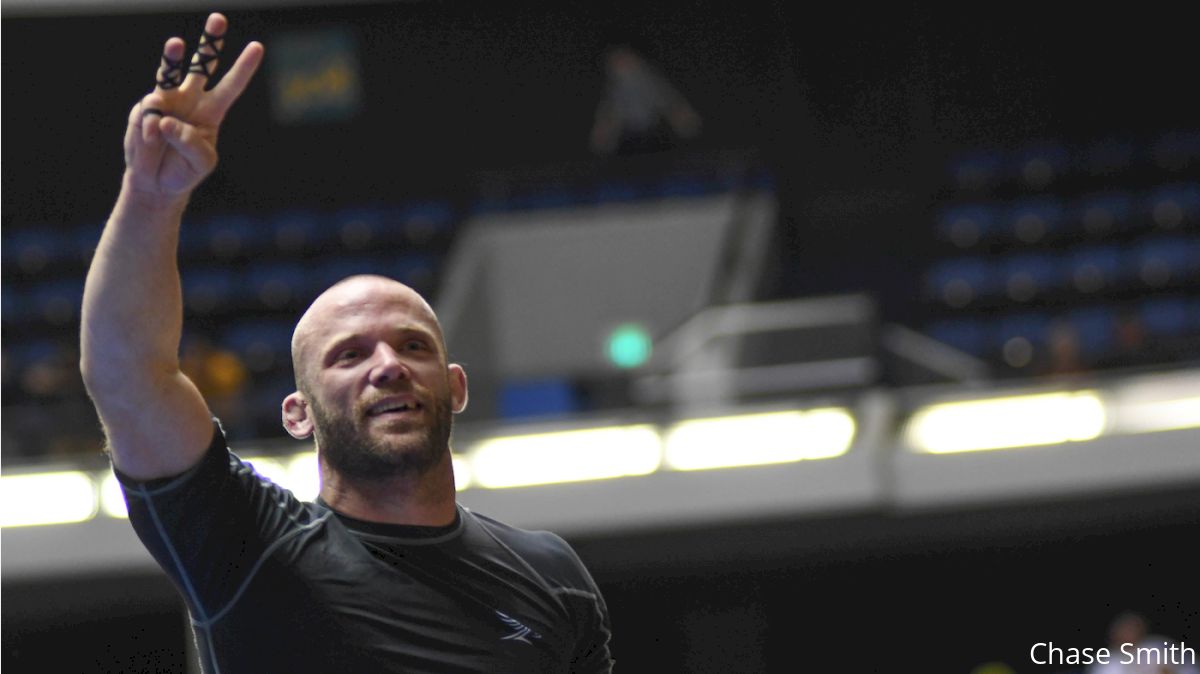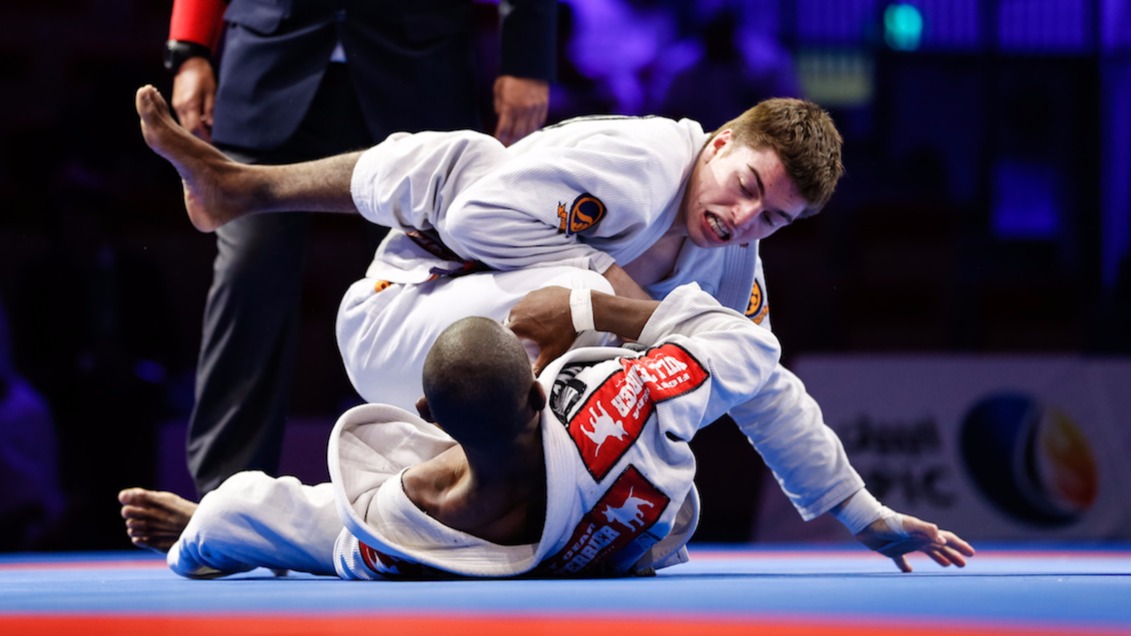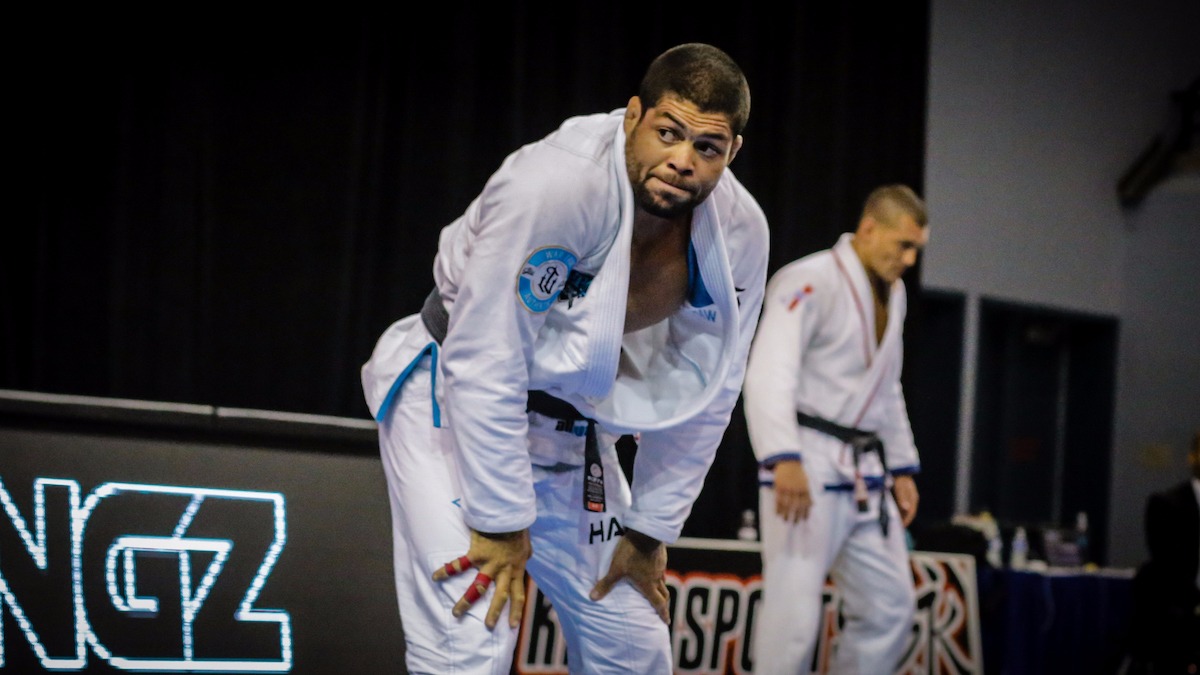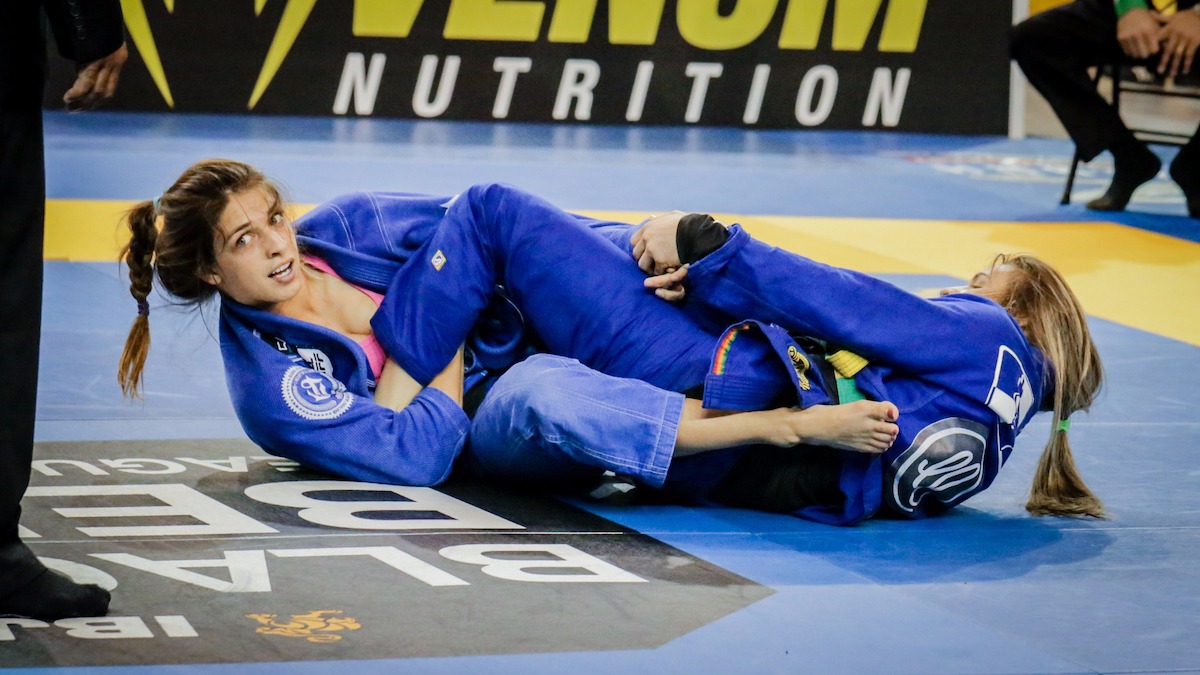How To Manage Your Mind On Tournament Day
How To Manage Your Mind On Tournament Day
3x black belt No-Gi World Champion Josh Hinger gives some advice on managing your mindset in jiu-jitsu and dealing with competition anxiety.

In 2010, I entered the advanced no-gi division at Grappler's Quest. I remember the day very well, because I was a relatively new brown belt and it was my first time entering a division with several well-known, seasoned black belts.
The bracket had a good amount of tough guys, including Joao Assis, Bill Cooper, Jeff Monson, Milton Bastos, and Sean Spangler. After winning my first two matches, I was set to face Jeff Monson in the quarterfinals. I remember waiting for the match and thinking, "The guy is an ADCC champion, I have no chance of winning." I just figured I'd try to survive the match without being boring.
When the match started, I shot a low single. To my surprise, Monson went down, and I scored the first two points just before going out of bounds. I walked back to the mat center wondering how the heck that just happened. When the referee restarted the match, I hesitated as I wondered what my next move should be. Within a few seconds, he executed a technical stand-up and was right back on his feet.
At that moment, I was discouraged. I believed that my opportunity for an offensive attack had come and gone. I tried to shoot again, but he sharply sprawled and defended. From that point forward, I became defensive. Within a minute, Monson had a hold on my leg and dragged me down to the mat. As I was taken down, I thought, "Well, this makes sense". Even though I landed on the mat with a triangle setup, I knew there was no way I was going to lock it up.
I essentially accepted defeat even though the score was 2-2 and I was winning by an advantage for a guillotine attempt. I figured I wouldn't be able to hang under Monson's crushing pressure for the rest of the match time. Eventually, as I predicted, he squashed my butterfly guard, passed for three points, and then went back into my guard for the remainder of the match. Time expired, and I lost 5-2. But the truth is I lost that match before it even started. I couldn't get my head straight. My techniques were not supported by a strong will to finish my opponent.

The Importance Of Training The Mind
Most jiu-jitsu competitors focus the majority of their training on refining their technique and conditioning. While these aspects can pave the way to competitive success, a strong mental attitude is arguably the most important resource a competitor can develop.
Technique without mental fortitude is virtually worthless. The most powerful race car is useless if the driver is blind, drunk, or lost. Inversely, an old, beat-up, 3.5-cylinder Pinto manned by a sharp, focused, and determined driver can achieve some sort of goal, even if it's just arriving at the finish line.
For unseasoned competitors, tournament day can trigger a roller coaster of positive and negative thoughts and emotions. Just as grapplers practice guard passing and submission techniques, they should also practice managing their anxiety. It's not easy simulating this kind of stress without actual competition, but grapplers can always practice managing the direction of their thoughts and emotions.

Opportunities To Test And Develop Your Attitude
Every day, we are plagued by negative thoughts in our personal lives, in professional settings, and at the gym. It's important to remember we have the power to silence negative thoughts and reinforce positive thoughts in our own minds. But, like all things in jiu-jitsu, this takes practice.
For example, when the toughest black belt in the room asks you to spar with him or her, the usual reaction is something along the lines of, "I'm about to get smashed for six minutes." Here, the grappler accepts defeat before the roll even begins. It's far more beneficial to view these situations positively as opportunities for growth: to hit him/her with your best submission, to test yourself, to measure your progress.
Although the training room does not provide the same stress as competition, we should use our training to strengthen our mental attitude by practicing positive thoughts and actions.
Staying Positive In Jiu-Jitsu
Practice maintaining a positive perspective. Let's say you are a brand-new black belt. You sign up for a tournament, and somehow, the bracket shows you will fight five-time black belt world champion Rodrigo do Souza Antonio Treze de Junho de Mil Novecentos e Dezessete (not a real person).
You have two options:
Option 1: Gripe about your bad luck, believe you will inevitably lose, and think it's OK because the guy is a champion. You set a goal to simply survive the match without being submitted and basically accept defeat before it even begins.
Option 2: View the match as an opportunity to take down a champion and make a name for yourself in competitive jiu-jitsu. You can also attract potential sponsors if you manage to make it exciting. When you face off with someone famous, everyone is watching. Plan to use your very best submission and go for broke while abandoning any kind of point strategy — AND have fun while you do it.
As the underdog, the pressure to win lies on the well-known competitor. Isn't that why we all started jiu-jitsu — to have fun? Why should the fun stop just because you entered a competition? It shouldn't.
Remember this. No matter how nervous you are about squaring off with someone on the competition mats, he or she is very likely just as nervous. You can rest assured that person has looked you up and down, estimated your strength and your height, and thought about what team you came from. Are any of these factors really going to decide the match? No.

Managing The Competition Mindset
What decides the match is the competitor who allows their anxiety to hinder their performance. Anxiety can lead to hesitation, which will certainly lead to a loss.
Here are some tips for managing your competition mindset.
- Listen to music that amps you up or calms you down
- Practice training in high anxiety situations
- Silence your negative thoughts
- Tell yourself you will win (as many times as necessary)
- Train as hard as you can, always, and have confidence that you are prepared to win
- Compete as often as possible
- Don't allow a point deficit or a bad call stop you from fighting as hard as possible until the end of the match
- Don't passively wait for your opponent to act first
- Don't make excuses for yourself (before OR after your match)
For several months after that match with Monson, I made excuses for my loss: "He was bigger than me; he stalled the fight; I was just a brown belt," etc. I thought it was OK that I lost the match because he's an ADCC champion, and I was just a lowly brown belt.
I know now that my attitude was wrong. My techniques were sharp, but they were driven by a weak mind.
Six years later, I still deal with positive and negative thoughts on competition day, but I manage them much better than I used to. I've learned how to silence my thoughts and fight as hard as I can without hesitation. When I do that, I have great results.
Just remember that competitions do not define your jiu-jitsu — they are simply an opportunity for you to show your jiu-jitsu. My last piece of advice is always fight as hard as you can; don't overthink it; and don't forget to have fun.